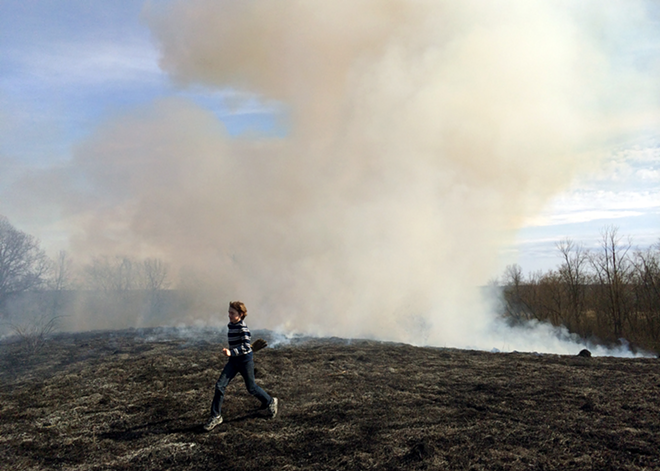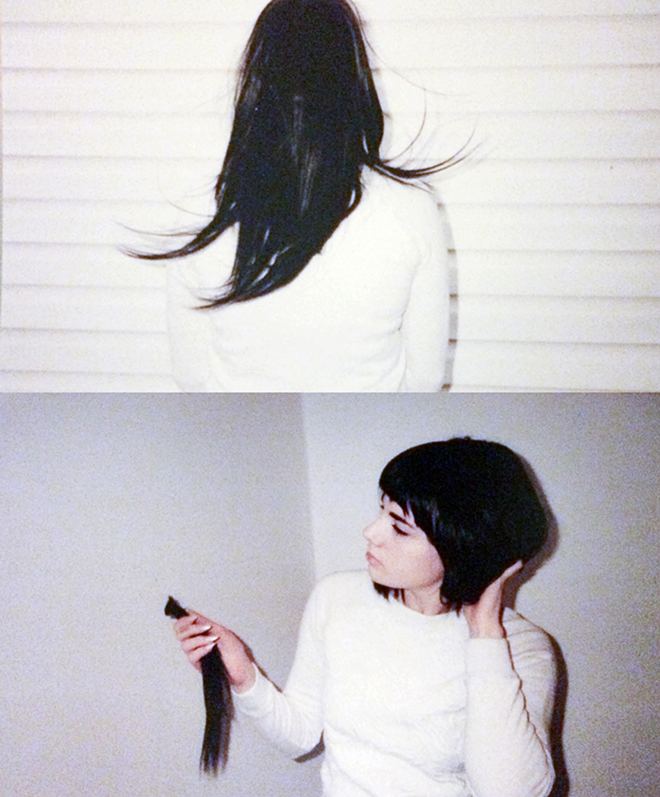
Miami expat Paul Kwiatkowski's And Every Day Was Overcast caught CL's attention last year with its phantasmagoric documentary approach to life in South Florida. Now he's working with Black Balloon Publishing to produce Eat Prey Drug, which takes his aesthetic of detached strangeness and strings together a photo-fueled narrative of cross country exploration and altered consciousness.
After being thrilled by early installments of the serial project, I touched base with Kwiatkowski to find out where he was really heading. He also picked a few of his favorite images from Eat Prey Drug, and paired them with excerpts from the narrative.
David Z. Morris: How exactly does one get an assignment to “investigate alternative perceptions of consciousness?"
Paul Kwiatkowski: Last winter I had a conversation with my publisher about the role of consciousness in developing narrative. I wanted to apply that idea to investigating out-of-body experiences, New Age mythology, the mechanics of memory, photography's role in our lives, drug experiences and social interaction — all while coasting on the spine of a derailed road trip I took from California to New York.
We decided that Eat Prey Drug would be less of a collection of case studies on various theories surrounding consciousness and more of a story that grows chapter by chapter as the narrator drives from West to East. Ideally the series would head into corridors with trap doors that open up to different perspectives on consciousness.
DZM: What’s the ultimate goal for the project?
PK: I’d like to evolve it into something more elaborate, psychedelic and collaborative. I’d love to work with more people I admire like Bobby Krlic from the Haxan Cloak, not necessarily just photographers and writers.

DZM: Your professional background is in photojournalism, which as you point out is hard to make a living at anymore. Is combining it with writing going any better?
PK: I actually never worked as a journalist; I worked in photojournalism as a multimedia producer for an agency called World Picture News, which imploded right before the recession. I produced and edited digital content for media outlets.
Also: You can make money as a writer?
DZM: Why are there ants crawling all over my desk?
PK: There’s too much sugar in your coffee.
DZM: What really strikes me about the whole project is that it’s resolutely realistic but presented in a way that gives it an otherworldly tinge. Where does that sense of almost-normal-but-not-quite come from?
PK: That is a direct result of living in Los Angeles. If you can’t weave a conversation around not-quite-normal topics like past life regressions and crystal energy, you’re at a social disadvantage in L.A. I never had my horoscope read more times in my entire life than when I lived in Hollywood for two months.


DZM: In Eat Prey Drug, are you the author or a character?
PK: A character who acts in service of the author.
DZM: Would you describe the people you’re writing about as desperate, lost — or just independent at a time when that’s difficult?
PK: I think isolation and rebirth underpins our identity as Americans. I was inspired by a lot of James Howard Kuntsler’s critique of America's suburban development. We’re accustomed to a way of life that is sealed off from a lot of how the world operates. Aside from the breathtaking nature this country has become a series of malls, failed cities, suburbs, parking lots with no place to congregate.
I notice there's a strong yearning for contact that feels inverted by the "interconnectedness" of technology which has become the dominant center of every home. Maybe we’re all a little alone right now and it’s not a bad thing. America has had a rough transition into the 21st century; a lot of us are re-evaluating our identity and if what we’re getting out of life is worth the work.
Eat Prey Drug is updated weekly, and runs through late November at Black Balloon Publishing's blog, Airship Daily.

